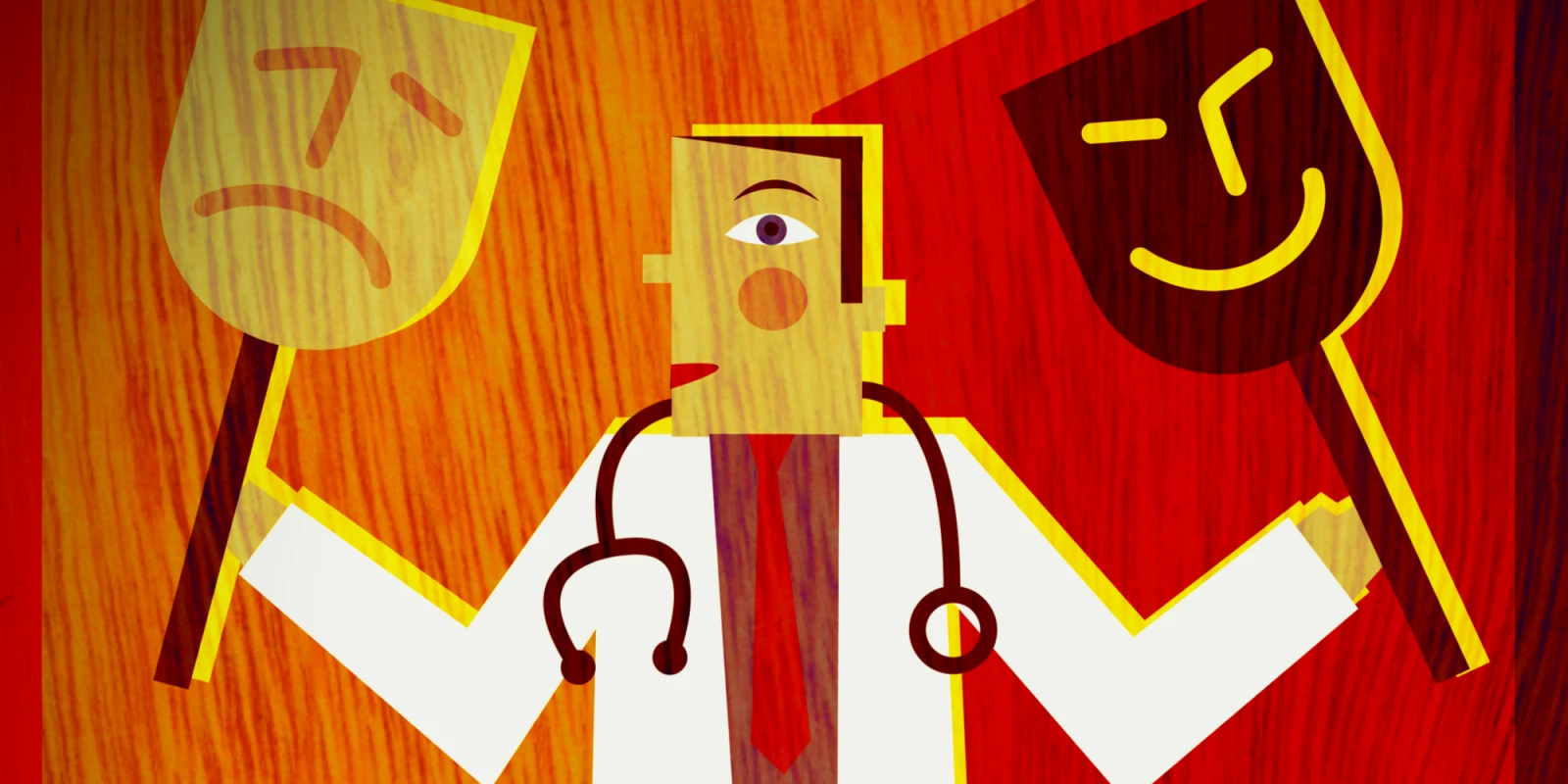 There is a justified stereotype of the grumpy physician who is overly brusque with patients, staff, and anyone else around him/her. (Although, let’s be honest: the stereotype is usually of a male). This doctor often explains things in very technical terms to patients, if he explains anything at all, and seems frustrated by any hint of questioning of his authority. Everyone, patients included, seems to cower in his presence, unsure what verbal lashing he may unleash. This leads to worse patient care, poor teamwork, a worsening of public trust in the profession, and even an increase in malpractice claims.
There is a justified stereotype of the grumpy physician who is overly brusque with patients, staff, and anyone else around him/her. (Although, let’s be honest: the stereotype is usually of a male). This doctor often explains things in very technical terms to patients, if he explains anything at all, and seems frustrated by any hint of questioning of his authority. Everyone, patients included, seems to cower in his presence, unsure what verbal lashing he may unleash. This leads to worse patient care, poor teamwork, a worsening of public trust in the profession, and even an increase in malpractice claims.
This behavior simply has to stop.
We have all had run-ins with such physicians (maybe even from ourselves). I recall the cardiothoracic surgeon throwing a scalpel across the OR; the ICU intensivist who routinely insulted patients to their faces, attendings publicly humiliating their learners; the cardiologist that complained about every inpatient referral sent his way; the family physician who hurled the f-bomb at a patient for not following recommendations. These are legitimate problems and have been for years. It’s very possible that the added stress of practicing medicine today is even making it worse.
There is often the refrain that as long as the physician is excellent at what they do, we can look past their interpersonal interactions (to an extent). However, there is evidence that this is more of an excuse. A study out of Vanderbilt showed that the surgeons with the most complaints about their bedside manner also had higher rates of malpractice claims. There are obviously some nuances to the data and our subsequent interpretation of such a study, but it does suggest patient safety issues with physicians beings “jerks.” Roughly 3 percent of physicians in the United States account for 50 percent of complaints and represent upwards of 60 percent of the malpractice risk.
Many other doctors interact just fine with patients but primarily have problems in their interactions with staff and learners. Thus, those complaints aren’t as easily accessible to evaluate on a broad scale. But we can safely say that the number, in this case, would go well beyond the 3 percent. Simply being a jerk worsens things for your patients and yourself.
Public trust in our profession has eroded significantly over the last few decades. Only 34 percent of Americans express confidence in the medical profession, near the bottom amongst 29 countries surveyed, which is of huge cause for concern. Our behavior that does not meet public expectations is certainly a driver, though there are many contributors, many of which are not even our fault. Third-party payors drive care decision-making more than they used to. Ditto for increasing government regulations. Electronic medical records cause significant distress and frustration. The biologist Robert Sapolsky describes the “building blocks of psychological stressors” in his book titled Why Zebras Don’t Get Ulcers — lack of outlet for frustration, weak social support, unpredictability, lack of control, and a perception of things worsening — which perfectly define the everyday life of physicians. We face the perfect storm for irritability, burnout, and even mental illness, problems that are borne out by multiple studies. Many express a loss of their humanity, or at least a significant decrease in the altruism that drove so many of us into medicine.
Of course, we sometimes let our frustrations out in front of patients! Does all this justify our poor behavior? Absolutely not. That then adds yet another difficult thing for us to do — keep our emotions in check. Doctors tend to be good at burying difficult things for the sake of our work, but that also means that we are more likely to erupt at certain times, and/or engage in other unbecoming behaviors.
So what do we do? The same stuff that we already know we should do: find the right stress relievers. Exercise. Sleep. Eat well. Keep working to alleviate many of the external impositions on our ability to care for patients through advocacy.
All easier said than done. But in the end, we simply need to decide that showing respect and kindness to others is worth it, despite all of the turmoil that we go through.
Dr. Kyle Bradford Jones is a board-certified family physician at the University of Utah School of Medicine. He practices at the Neurobehavior HOME Program, a patient-centered medical home for individuals with developmental disabilities. He is very interested in how technology and social media can be used to improve overall health and clinical care.
Dr. Jones is a 2018–2019 Doximity Author.
Image by sparkstudio / Shutterstock







